Background on King Vittorio Emanuele III
King Vittorio Emanuele III was the unlucky King of Italy who saw his country through both World Wars. He was, at times, a beloved king, who saw his country through good times, war and economic crisis. At another time, King Vittorio Emanuele III angered the people of his country by standing by and allowing Italy to take part in a war alongside a country that was bent on suppressing “inferior” races/groups of people and expanding its borders far beyond what was acceptable to the rest of the world.
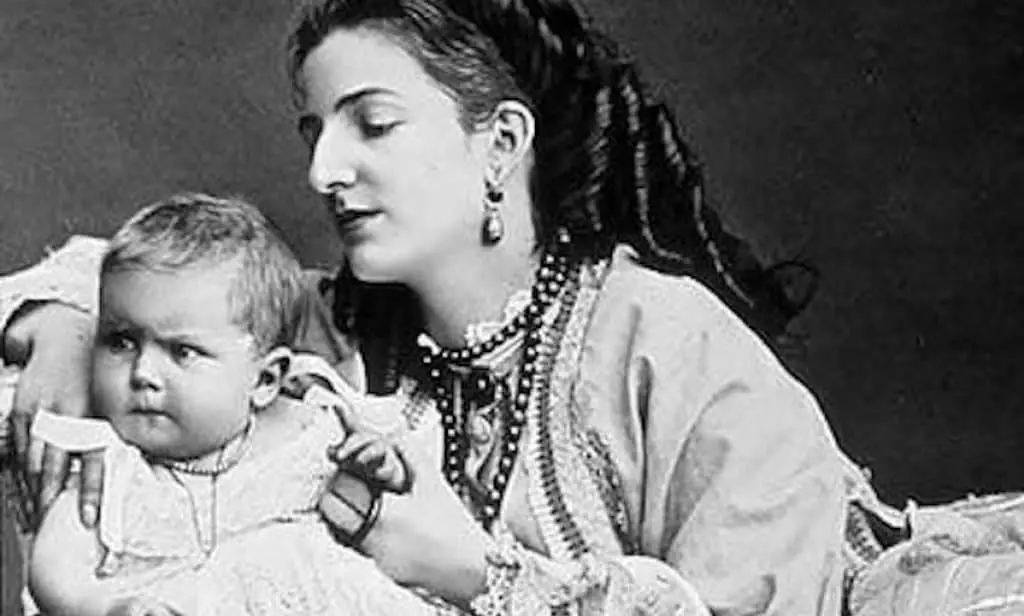
A young Vittorio Emanuele with his mother, Queen Margherita of Savoia.
King Vittorio Emanuele III was born on November 11, 1869 in Naples, Italy. His father was King Umberto I. His mother was Margherita di Savoia. Vittorio Emanuele spent his early life as the son of a king would. He studied history and law. In October of 1896, he married a princess. Her name was Elena and she was the daughter of Prince Nicholas di Montenegro. Four years later, his life completely changed when, his at times unpopular father, Umberto I was assassinated by an anarchist.
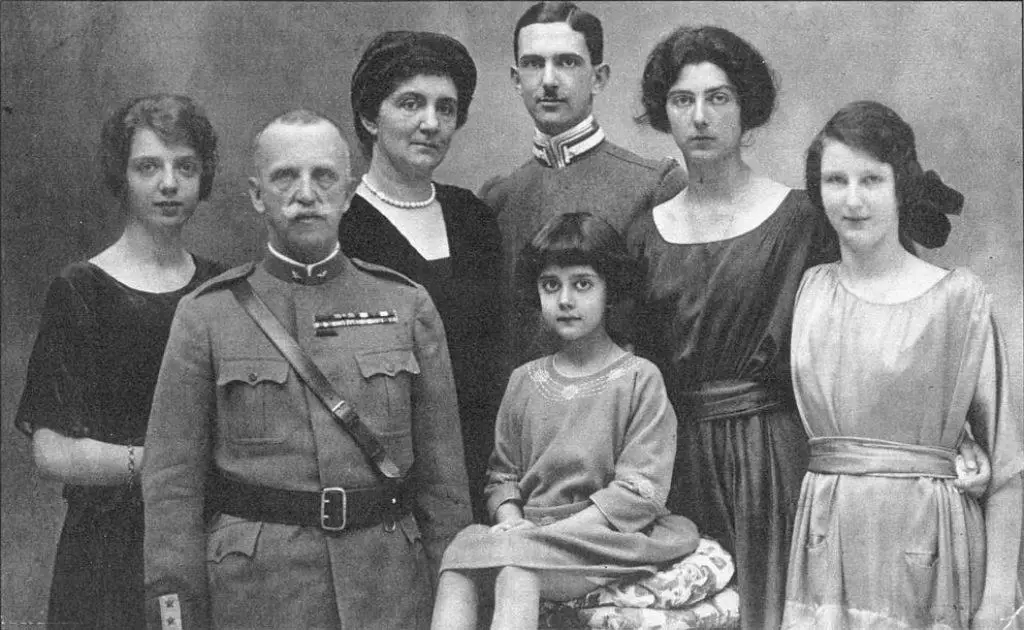
A family portrait (L-R) Mafalda, King Emanuele III, Elena, Vittorio Emanuele ed Elena, Umberto, Jolanda, Giovanna and Maria.
How Emanuele III Became King
King Umberto I was assassinated on July 29, 1900, by an anarchist named Gaetano Bresci. At 31 years of age, time Vittorio Emanuele became King of Italy. For a time, King Emanuele III enjoyed relative peace in his country. However, fourteen years after he became king, World War I began. At the time, Italy was publicly neutral, but the king and his government were secretly planning to join the war. This was not a popular position among the people. Nonetheless, he had the authority to make that choice without the support of his people, and he did. He severed all previous ties with Germany and Austria-Hungary and signed the Treaty of London on April 26, 1915. This treaty granted Italy several territories in exchange for joining the United Kingdom, France and Russia (“The Triple Entente”) in their war against Germany and Austria-Hungary.
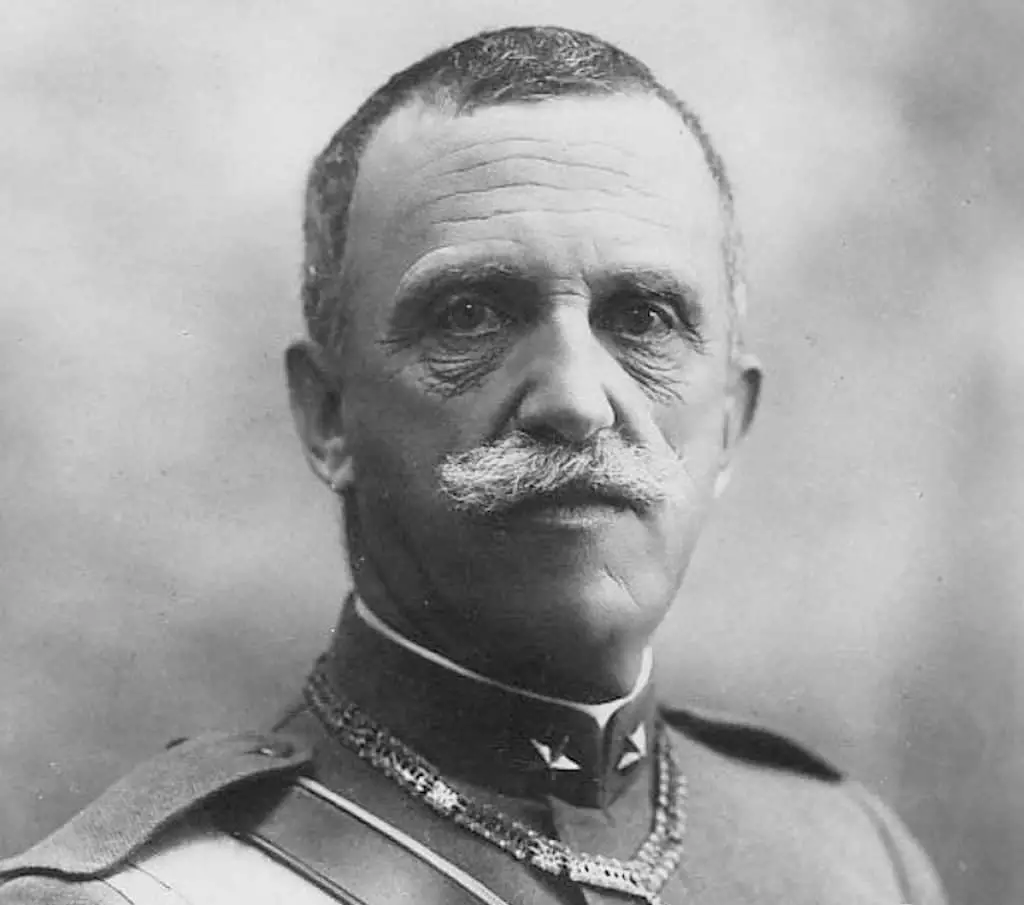
Portrait of the King
World War I and the Rise of Fascism
Roughly one month after King Vittorio Emanuele III joined forces with the “Triple Entente,” he publicly declared war against Germany and Austria-Hungary. Italy suffered grave losses during World War I and by the end of the war, Italy was in the midst of an economic crisis (Mehl). Some sources say he was impassive and incompetent in his handling of the war and its aftermath. Others say that he bravely helped his citizens both during the war and after. Either way, the country faced economic hardships that the fascists hoped to stop.
During and after World War I, fascism was spreading throughout Italy. This fascist movement would come to power under a man named Benito Mussolini. Mussolini and a group of his followers marched on Rome in 1922. King Vittorio Emanuele III was unsure of the military’s ability to suppress the seemingly inevitable uprising, so he did what was least expected. He made the utterly inexperienced and power hungry Mussolini the Prime Minister of Italy. From there, Mussolini’s power grew under the inattentive eye of King Vittorio Emanuele III.
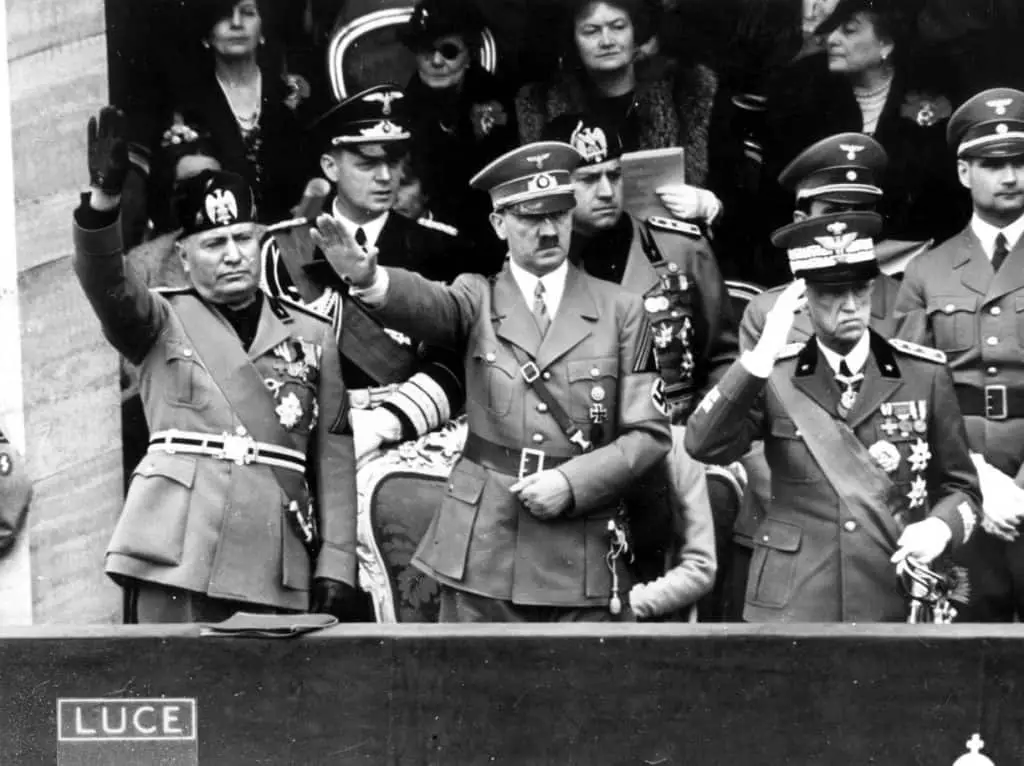
(L to R) Benito Mussolini, Adolf Hitler, and King Vittorio Emanuele III.
By all accounts, King Vittorio Emanuele III did not support Mussolini personally, but he did nothing to stop Mussolini from wielding power over the military that was equal to his own. Furthermore, Mussolini held nearly as much control over the government as the king himself. He established racist and fascist laws that have helped paint the picture of an evil dictator for future generations (though Mussolini was at least somewhat well-meaning). He also brought Italy into yet another World War. Not before King Vittorio Emanuele III had somewhat unethically acquired the titles of Emperor of Ethiopia and King of Albania.
World War II
On June 10, 1940, Benito Mussolini declared war on the Allies. Three years later, the King had had enough. The war was not going well for Italy and the King was becoming more and more unpopular amongst his people. Mussolini was summarily dismissed by the King on July 25, 1943, after Mussolini had been stripped of power by his very own Fascist Grand Council the day before. The King then had him arrested and exiled to Gran Sasso. He then abdicated his titles as Emperor of Ethiopia and King of Albania. He reestablished peace with the Allies on September 28, 1943. This did nothing to help his popularity, though. Nor did it help the Italian soldiers who had scarcely been informed of this change in plans before the German troops in Italy began killing them, imprisoning them and coercing them into changing sides.
Abolishment of Monarchy and Death
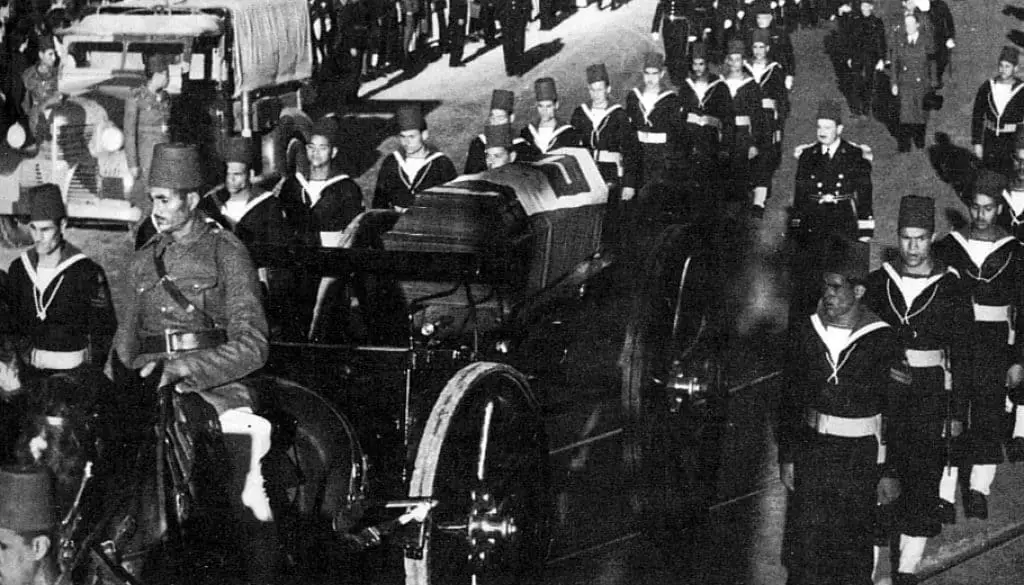
The funeral procession of the King in Alexandria, Egypt.
The king fled Rome that year. Hitler wanted him arrested and his people blamed him for their horrible losses. In 1944, he made his only son, Umberto II de facto king. The Italian monarchy was abolished two years later and the King’s family left the country. Vittorio went to Alexandria, Egypt, where he died on December 28, 1947. He was 78-years-old.
